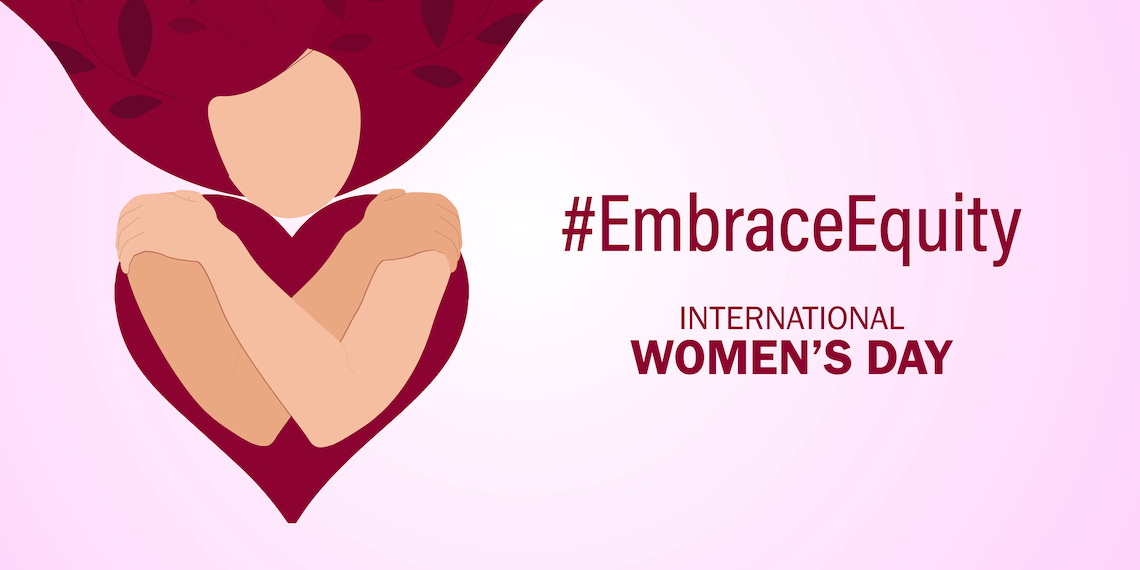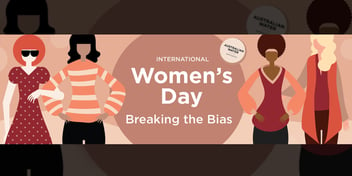How water businesses can support women’s success

The road to genuine equity within the workplace is one many water community businesses have been traveling for a while now, and key leaders within the sector agree that fostering inclusive and safe cultures is fundamental to success.
The theme of this year’s International Women’s Day (8 March) is Embrace Equity, inviting everyone to imagine a world free of bias, stereotypes and discrimination, where differences are valued and celebrated, as we work towards equity together.
To celebrate this important journey, Water Source spoke with Australian water sector leaders about one of the IWD’s key missions for 2023 – building workplaces where women thrive – and what water businesses can do to ensure women are supported.
Why equity?
Power and Water CEO Djuna Pollard said embracing equity in pursuit of building workplace environments where women feel valued is crucial on many different levels, an insight she has gained through lived experience.
“First and foremost, no matter the industry or sector, feeling equally valued and respected is fundamental to a person's health and wellbeing. But it is also what brings the best out in people,” she said.
“I have led many male-dominant operational functions, often within a very ‘blokey’ environment. This experience has given me a lot of perspective; it has informed and shaped the focus I have taken since I have been fortunate enough to take up the role of CEO at Power and Water.
“It’s allowed me to shape the initiatives we do to promote equity. But it goes beyond that – my experience has informed the type of culture I want to achieve at our organisation.”
Hunter Water Executive Manager Finance and Business Performance Jennifer Hayes said embracing equity within water businesses is also important to servicing communities.
“From a water utility perspective, promoting inclusion and diversity is really important to ensure we can perform as best we can and reflect the varying views of our community and customers,” she said.
“But we also need to do this work to ensure the women we employ can thrive – whether that is through providing opportunities or having their ideas noticed and heard.
“There are typical misunderstandings about women in water, or any field that is STEM dominated. Girls aren’t always viewed as smart enough to be scientists and engineers, and mothers aren’t always seen as capable of juggling their job with their family.
“We are showing that this is simply not the case. Girls and women can do all of these things, and more.”
Greater Western Water (GWW) Managing Director Maree Lang said embracing equity is also integral to ensuring water businesses are able to meet growing challenges with the most innovative and creative solutions.
“The water sector faces complex and significant challenges: extreme weather events, acceleration in population growth, increasing demand for water, staff shortages and a war for talent across all utilities are just a few,” she said.
“Meeting these challenges requires creativity and innovation, and that’s what diversity in staff brings. A diverse workforce has a broader range of skills, experiences, perspectives and ways of thinking.
“There is ample evidence that diverse and inclusive companies are more likely to make better, bolder decisions and outperform organisations that do not focus on building a diverse and inclusive organisation.”
Safe cultures
Building a workplace where women thrive starts with ensuring organisational culture is respectful, supportive and inclusive.
“It really does start with creating a safe space. We need to allow people the opportunity to take on new roles and challenges, and provide the necessary support mechanisms for them to succeed,” Pollard said.
“Culture is really important. Traditionally, we have had quite an avoidant and oppositional culture. We are tackling that and driving change in that type of environment.
“We are now doing a lot of work through various initiatives to move into an ‘achievement through people’ orientation. That’s the culture that we want at Power and Water. Intrinsically linked to culture is leadership. It’s important to have role models for gender diversity and equality.”
Hayes said ensuring safe workplace cultures that are genuinely inclusive is all about trust.
“I don’t think you can do inclusion and diversity without acknowledging that this is a trust issue. Inclusion means trust and it means psychological safety,” she said.
“Women need to feel safe to ask for a flexible work arrangement. They need to feel that their voice will not be disregarded or disrespected. Women need to feel comfortable in the places they work and empowered to turn up authentically.”
And building trust, according to Hayes, is about much more than diversity metrics – it’s about transforming environments in pursuit of equal treatment and equal opportunity.
“Diversity metrics are not enough. We can hire for diversity and track those markers, but if we continue to manage employees with sameness, nothing really changes. This is about sustainable actions and change. It needs to be ongoing. It requires continuous effort,” she said.
Providing support
Closely linked to culture, ensuring support is in place to accommodate the needs of women is also very important, as it showcases that the workplace in question is prepared to meet diversity talk with inclusivity actions.
“We are a flexible workplace. Particularly for women with young children, we need to think about how we can structure rosters to allow for our team members to meet their family commitments, while still being able to function as a business,” Pollard said.
“I am a mother, as well. I often get asked about how I juggle everything and manage it all. I believe it’s important for us to share these stories and to have open conversations about what we need to be successful in our roles. And we need to be open to putting support strategies into action.”
Aside from workplace flexibility, Hayes said other support strategies include committing to equal pay, opening up paid parental leave to all genders and supporting more women into leadership roles.
“We have a commitment to equal pay for men and women across our business. This has required a review of pay practices. We do this to ensure we are paying fairly, but also to make sure that we are attracting women to the business through our pay practices and policies,” she said.
“Paid parental leave has traditionally been considered a maternal issue. We have expanded that now to include paternity leave, too. A lot of other water businesses are doing the same.
“We are also focusing on leadership development opportunities to nurture our pipeline. We work with the University of Newcastle to offer a Women in MBA scholarship program. We sponsor two women leaders through the program every year and we currently have nine in the program at the moment.”
Hunter Water also focuses a lot of energy on supporting vulnerable women within the community, as well, Hayes said. This includes working with external partners to create access to economic support, as well as fundraising for victims of domestic violence.
“We do a lot, but there is always more to do. And it’s part of my role as a woman within a senior leadership position to make sure that we keep working on this,” she said.
GWW also provides pathways for emerging female leaders through a network of mentors and the Women in Leadership Development (WILD) program, Lang said.
“Importantly, our four-year gender equality action plan reflects our commitment to supporting female employees in their careers,” she said.
“It provides the foundation for ensuring gender equality at all levels, economic security for women, gender diversity across roles and a safe and respectful workplace for all.
Rallying allies
While events like International Women’s Day focus on women, Pollard said it’s also crucial to recognise the role men play in helping to transform cultures and provide support.
“We must have support from men within our workplaces. This goes to the heart of the equity discussion. It makes a big difference to know that you are supported by your male peers, as well,” she said.
“For me, that epitomises true equity, and the value and the respect that comes with that should not be underestimated.”
Hayes said she was once surrounded by male peers within a financial leadership role, prior to entering the water sector, and the experience got her thinking about what leadership really is, and why it’s important for men and women to work together for equality.
“It felt to me that what it means to be a good leader was defined around the western, white male. Leadership seemed to be about being tough, directive, not really having any feelings or showing any emotion. I felt like I needed to adapt to be like my male counterparts,” she said.
“At times, it was quite lonely. I didn’t feel like I had support. The lessons I learned through that experience absolutely inform how I perform my role now. And I am determined to create a different environment for other women than the one I experienced.
“I’ve learned it's important to reach out to other women within the workforce, whether they are peers, talented women in the pipeline or emerging leaders, and ask them how I can help.
“But just as important is our collective need to see male role models behave in a way that supports women, too. We need allies. This is not just a woman’s journey. It’s an us journey – both men and women together.
“We all have unconscious bias. But learning and being aware of that is what is going to make us truly better together.”
And Lang agrees, leadership in embracing equity is fundamental to moving the dial: “I endeavour to walk the talk and be genuine in my approach to diversity and inclusion. I believe that when equality is truly valued at the top it filters down through the organisation and ultimately becomes embedded in the culture”.
“It’s one thing to have the right policies in place but it needs the leadership team to hold true to their word and lead by example,” she said.
“My lived experience means that I am acutely aware of the importance of equality in the workplace and it’s a priority for me. I hold myself and the leadership team accountable for ensuring it’s not a tick box for the organisation and that it’s a genuine commitment we follow through on.”


